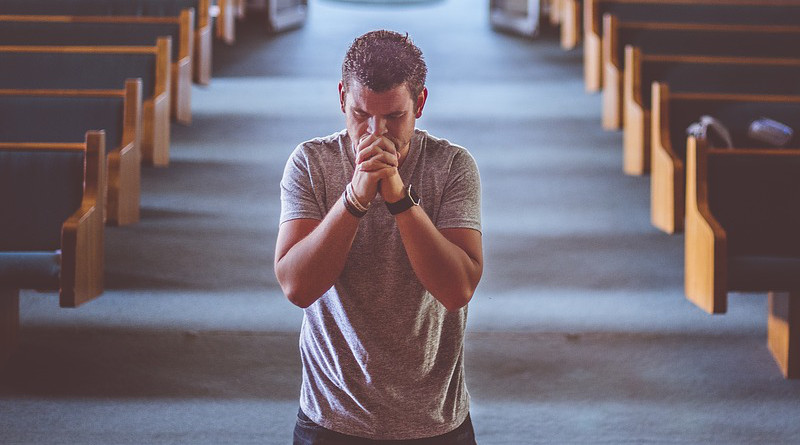No Religion And Political Divisiveness Both Rise Together – OpEd
A study published in the open-access journal PLOS ONE on February 24, 2021 reported that two large surveys involving 4,193 atheists and theists from the U.S. (a predominantly religious country) and Sweden (a predominantly irreligious country) found that theists are more inclined than atheists to endorse moral values that promote group cohesion.
These findings suggest that the widespread idea that atheists are immoral may arise in large part from their weak endorsement of moral values that promote group cohesion. The significant rise in the percentage of Americans who say they are atheists in the last 30 years parallels the increasing political divisiveness in American politics.
America is being transformed by the rise of the “nones” — those who claim no religious identity. Some are atheists. Others agnostics. But most are “nones” who just don’t care much for organized religions.
They are “nothing in particular”, a category first tracked by Pew Research, and they make up about 1 in 5 Americans, according to the 2018 Cooperative Congressional Election Study, a survey with a sample size of 60,000 respondents, and has been conducted biannually since 2006.
These “nothing in particulars” might be the most consequential portion of America’s rapidly changing religious landscape, because they speak to a larger problem: unmoored and detached members of American society, as evidenced by the steady decline in the number of Americans who volunteer to serve in local civic activities like scouting or working in charity events.
Americans identifying as “nothing in particulars” have rates of social and political involvement ranking near the bottom of any religious group. Those who are “nothing in particular” aren’t just cut off from organized religion. They have disconnected from many of the basic organizations and behaviors that hold humans together as communities.
If the trend continues, the United States may be headed for a very disjointed, disaffected, self-alienated future; with an increasing self-centered yet lonely population.
According to a recent survey by the global health service company Cigna, the loneliest generation in the United States today is not the oldest Americans but the youngest, specifically young adults between 18 and 22 years old, with parents who taught them to be “nothing in particular” by example.
Reported baptisms among Southern Baptists have declined in eight of the last 10 years and dropped by more than 100,000 since 2009, according to the Southern Baptists Annual Church Profile whose annual profile counted 246,442 baptisms — the lowest reported number since 1950. The highest-ever reported number of baptisms was 445,725 in 1972.
The second largest group is the ‘nothing in particulars’ who respond to the religion question by saying: “none of the above.” Over the last three decade, there is a clear and unmistakable trend: The group that has grown the largest in sheer numbers is “nothing in particular.” Fully 1 in 20 Americans joined this group in just the last 10 years.
While other groups have seen some modest growth (atheists have gone from 3.4% in 2008 to 6% in 2018, nothing comes close to the growth of “nothing in particular.”
The 2016 Cooperative Congressional Election Study asked respondents if they had engaged in one of five activities: attended a local political meeting, put up a political yard sign, donated money to a candidate/campaign, volunteered for a political campaign or given blood.
The group least likely to check any of those boxes was the “nothing in particulars.” According to the CCES 2018, nearly two-thirds of the “nothing in particulars” had participated in none of the five activities in the past 12 months. That was the highest of any of the religious or non-religious groups in the survey.
So, we have a group that currently comprises 20% of all Americans, and is growing at a rapid pace. This group has the lowest level of education of any religious group, and “nothing in particulars” are much less likely to engage in political or social activity than average Americans.
In addition, they are three times more likely to say their political partisanship is “other” as well. They are adrift in modern society, refusing to be labeled by a religious community or a political party.
All these things are occurring while Americans express growing levels of anxiety, a rapid increase in opioid addiction and a rising number of suicides. Are these things causally related?
Deteriorating mental health is often linked to people who feel left out and left behind from society at large. For instance, Pew Research found that actively religious people are more likely to describe themselves as “very happy.”
No matter how one feels about religion, it’s undeniable that religious communities have spent generations building networks that support those who are most vulnerable in our society. As the number of socially detached self-centered people grows, the ability of faith groups to fill in the gaps will be diminished, and it seems highly unlikely that they can be easily replaced by the government.
So the significant rise in the percentage of Americans who say they are atheists in the last 30 years; which parallels the increasing political divisiveness in American politics; is also promoting at the same time an increasing number of Americans who are detached from non-political groups that promote group cohesion. Nasty politics has become a new religion for many people; and self-righteous scapegoating is growing.
Catholics, Jews, and Muslims are some of the most activist religious groups in America in terms of civic participation rates; but only if more people join them; and they all work together will they be able to support the rest of American society.

